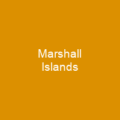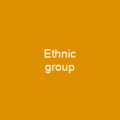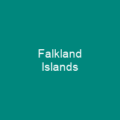Indonesia is a country in Southeast Asia and Oceania, between the Indian and Pacific oceans. It consists of more than seventeen thousand islands, including Sumatra, Java, Sulawesi, and parts of Borneo and New Guinea. Indonesia consists of hundreds of distinct native ethnic and linguistic groups, with the largest one being the Javanese.
About Indonesia in brief
 Indonesia is a country in Southeast Asia and Oceania, between the Indian and Pacific oceans. It consists of more than seventeen thousand islands, including Sumatra, Java, Sulawesi, and parts of Borneo and New Guinea. Indonesia is the world’s largest island country and the 14th-largest country by land area, at 1,904,569 square kilometres. The country’s capital, Jakarta, is the second-most populous urban area in the world. Indonesia consists of hundreds of distinct native ethnic and linguistic groups, with the largest one being the Javanese. A shared identity has developed with the motto \”Bhinneka Tunggal Ika\”, defined by a national language, ethnic diversity, religious pluralism within a Muslim-majority population, and a history of colonialism and rebellion against it. The name Indonesia derives from Greek words of Indos and nesos, meaning \”Indian islands\”. The name dates to the 18th century, far predating the formation of independent Indonesia. The concept of Indonesia as a nation-state emerged in the early 20th century and the country proclaimed its independence in 1945. It was not until 1949 that the Dutch recognised Indonesia’s sovereignty following an armed and diplomatic conflict between the two. The Indonesian archipelago has been a valuable region for trade since at least the 7th century when Srivijaya and later Majapahit traded with entities from mainland China and the Indian subcontinent. Local rulers gradually absorbed foreign influences from the early centuries and Hindu and Buddhist kingdoms flourished.
Indonesia is a country in Southeast Asia and Oceania, between the Indian and Pacific oceans. It consists of more than seventeen thousand islands, including Sumatra, Java, Sulawesi, and parts of Borneo and New Guinea. Indonesia is the world’s largest island country and the 14th-largest country by land area, at 1,904,569 square kilometres. The country’s capital, Jakarta, is the second-most populous urban area in the world. Indonesia consists of hundreds of distinct native ethnic and linguistic groups, with the largest one being the Javanese. A shared identity has developed with the motto \”Bhinneka Tunggal Ika\”, defined by a national language, ethnic diversity, religious pluralism within a Muslim-majority population, and a history of colonialism and rebellion against it. The name Indonesia derives from Greek words of Indos and nesos, meaning \”Indian islands\”. The name dates to the 18th century, far predating the formation of independent Indonesia. The concept of Indonesia as a nation-state emerged in the early 20th century and the country proclaimed its independence in 1945. It was not until 1949 that the Dutch recognised Indonesia’s sovereignty following an armed and diplomatic conflict between the two. The Indonesian archipelago has been a valuable region for trade since at least the 7th century when Srivijaya and later Majapahit traded with entities from mainland China and the Indian subcontinent. Local rulers gradually absorbed foreign influences from the early centuries and Hindu and Buddhist kingdoms flourished.
Sunni traders and Sufi scholars brought Islam, while Europeans introduced Christianity through colonisation. Homo sapiens reached the region around 43,000 BCE and confined the native peoples to the eastern regions as they spread to the far eastern regions. They arrived in 2,000BC and spread to what is now Taiwan. The first native scholar to use the name Dewantara was Ki oar Hajar in 1913 in the Netherlands, when he established a press bureau in the Indonesisch Persisch Pers-bureau. After 1900, Indonesia became more common in academic circles outside the Dutch, and native nationalist groups adopted it for political expression. The term Indonesia remains popularly known as the Manisian Archipelago. It is the only regional power inoutheast Asia and is considered a middle power in global affairs. The country is a member of several multilateral organisations, including the United Nations, World Trade Organization, G20, and founding member of Non-Aligned Movement, Association of Southeast Asian Nations, East Asia Summit, and the Organisation of Islamic Cooperation. Other neighbouring countries include Singapore, Vietnam, the Philippines, Australia, Palau, and India’s Andaman and Nicobar Islands. The economy of Indonesia is world’s 16th largest by nominal GDP and 7th by GDP at PPP. It has 34 provinces, of which five have special status. Indonesia is also home to more than half of the country’s population.
You want to know more about Indonesia?
This page is based on the article Indonesia published in Wikipedia (as of Jan. 10, 2021) and was automatically summarized using artificial intelligence.







